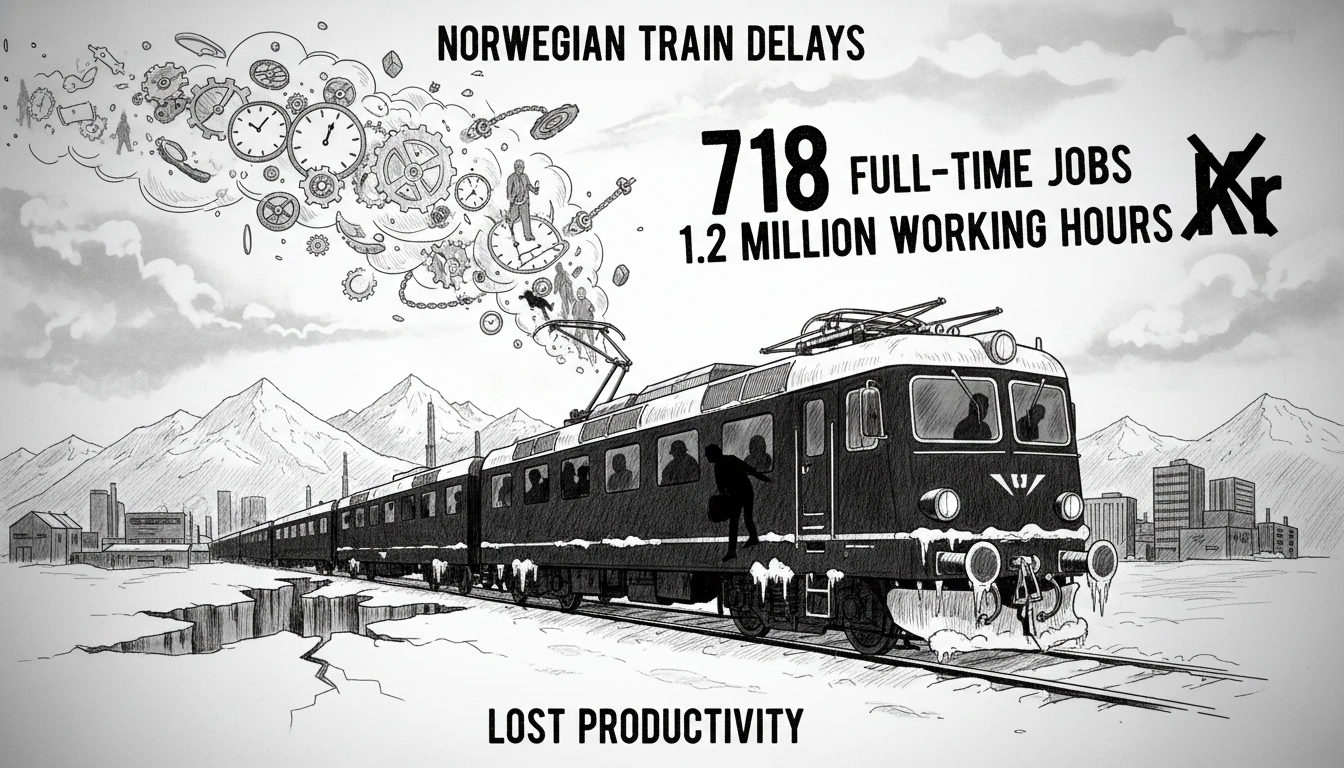Norwegian train passengers will collectively lose over 1.2 million working hours due to delays in the coming year. New figures reveal this productivity loss equals 718 full-time positions vanishing from the economy. Transport Minister Jon-Ivar Nygård presented these stark numbers to Parliament this week.
The data emerged in response to questions from parliamentarian Anna Molberg. She had requested a comprehensive overview of actual working time lost across Norway's rail network. The minister's detailed response paints a concerning picture of systemic transportation challenges.
Norwegian commuters face regular disruptions on key routes like the Oslo-Bergen line and services through the busy Eastern Corridor. These delays create ripple effects throughout the business community. Employees arrive late to meetings and miss important deadlines. The cumulative impact reaches deep into national productivity.
This situation reflects broader infrastructure challenges facing Norway. The country maintains extensive rail networks despite difficult mountainous terrain and harsh winter conditions. Aging infrastructure requires constant maintenance while passenger numbers continue growing.
International readers should understand Norway's unique transportation landscape. The country relies heavily on rail transport for both commuter travel and freight movement. Major cities connect through tunnels and bridges that represent engineering marvels but require intensive upkeep.
Norwegian politicians face increasing pressure to address transportation reliability. The current government has made infrastructure investment a priority. Yet these latest numbers suggest existing measures may prove insufficient.
Business leaders express concern about the economic implications. Lost working hours translate directly to reduced output and higher operational costs. Companies depending on timely employee arrivals face particular challenges.
The transport minister's report doesn't specify which routes experience the worst delays. Previous studies indicate commuter lines around Oslo and intercity connections suffer most frequently. Weather-related disruptions compound scheduled maintenance problems.
What solutions might address this growing concern? Infrastructure upgrades require substantial investment and time. Improved scheduling and contingency planning could offer shorter-term relief. The government continues evaluating various approaches.
Norwegian train delays represent more than mere inconvenience. They constitute a genuine economic drain with measurable consequences. As commuting patterns evolve post-pandemic, reliable transportation becomes increasingly crucial for workforce productivity.
The parliament will likely debate this issue extensively in coming sessions. Opposition parties may use these figures to criticize current transportation policies. The minister faces pressure to present concrete improvement plans.
International companies considering Norwegian operations should factor transportation reliability into their planning. Employee commute times and predictability affect workplace efficiency and satisfaction. These infrastructure challenges form part of Norway's broader business environment.

